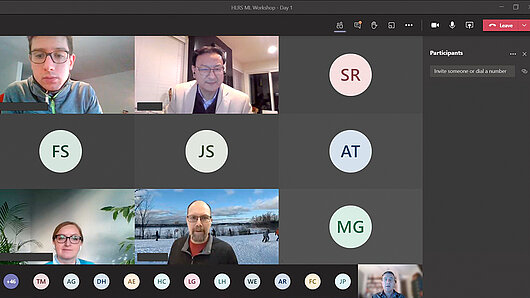High-Performance Computing Center Stuttgart

The course introduced participants to the AMD-based machine learning environment, including information on using TensorFlow and PyTorch (popular frameworks for programming machine learning applications) on AMD GPUs. Participants completed hands-on exercises using ROCm and learned how to use tools for monitoring AMD GPU performance.
The training activity was organized as part of a collaboration between AMD, HLRS, and EXCELLERAT, the European Centre of Excellence for Engineering Applications. HLRS is the coordinating center of EXCELLERAT, which is funded under the European Union's Horizon 2020 Program and is helping researchers in engineering industries develop the skills and software needed to effectively use larger and more complex HPC systems. The course was also held under the auspices of the bwHPC user support program, which supports training in high-performance computing in the German state of Baden-Württemberg.
HLRS Managing Director and EXCELLERAT Project Coordinator Bastian Koller welcomed the cooperation with AMD, saying, "HLRS is one of Europe's leading centers for training in high-performance computing (HPC), and as the landscape of hardware for machine learning, deep learning, and artificial intelligence evolves, it is important that we help HPC users gain the necessary skills to use it. HLRS was an early adopter of AMD technologies for simulation in the design of our Hawk supercomputer, and we are delighted for this opportunity to partner with them on training for machine learning as well."
"Leading HPC institutions are increasingly leveraging the power of 2nd Gen AMD EPYC processors to enable cutting-edge research that addresses the world's greatest challenges," said Mario Silveira, corporate vice president AMD EMEA. "Our EPYC CPUs, AMD Instinct accelerators and open software programming environment are helping to advance the industry towards Exascale-class computing, and we are proud to work with HLRS — a true leader utilizing the strength that AMDs solutions bring to the market. This training program is testament to that."
— Christopher Williams